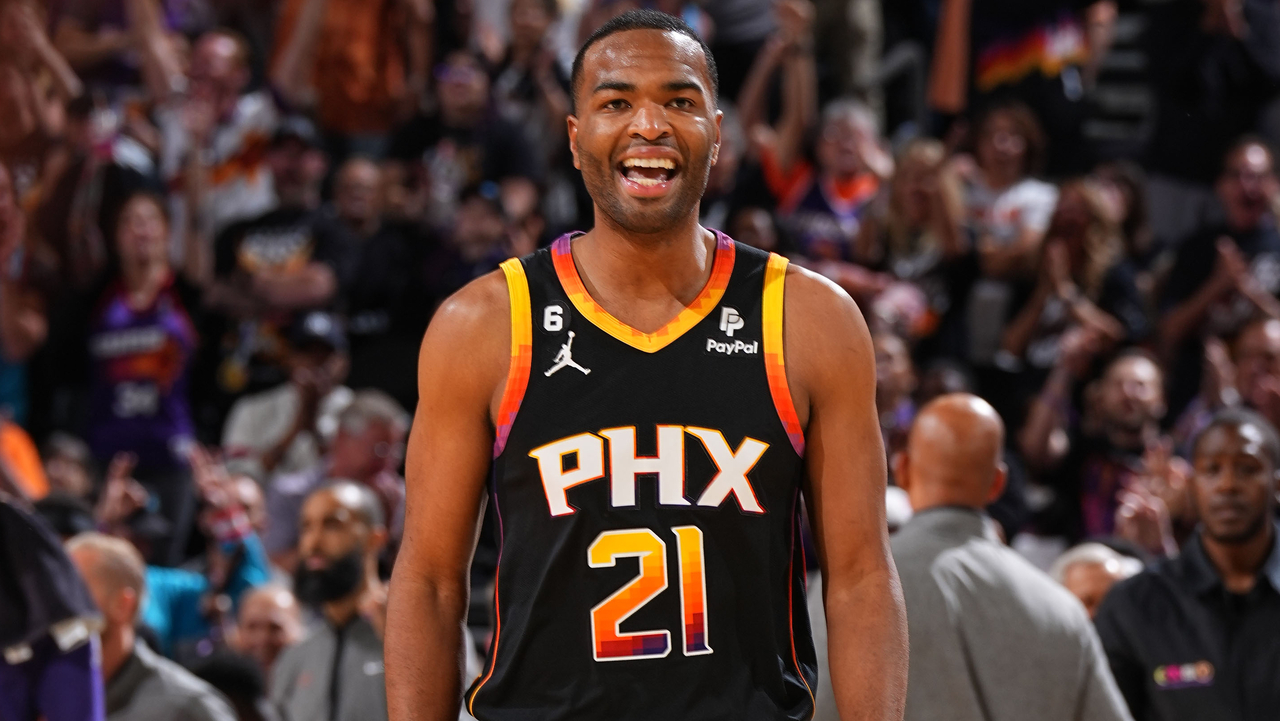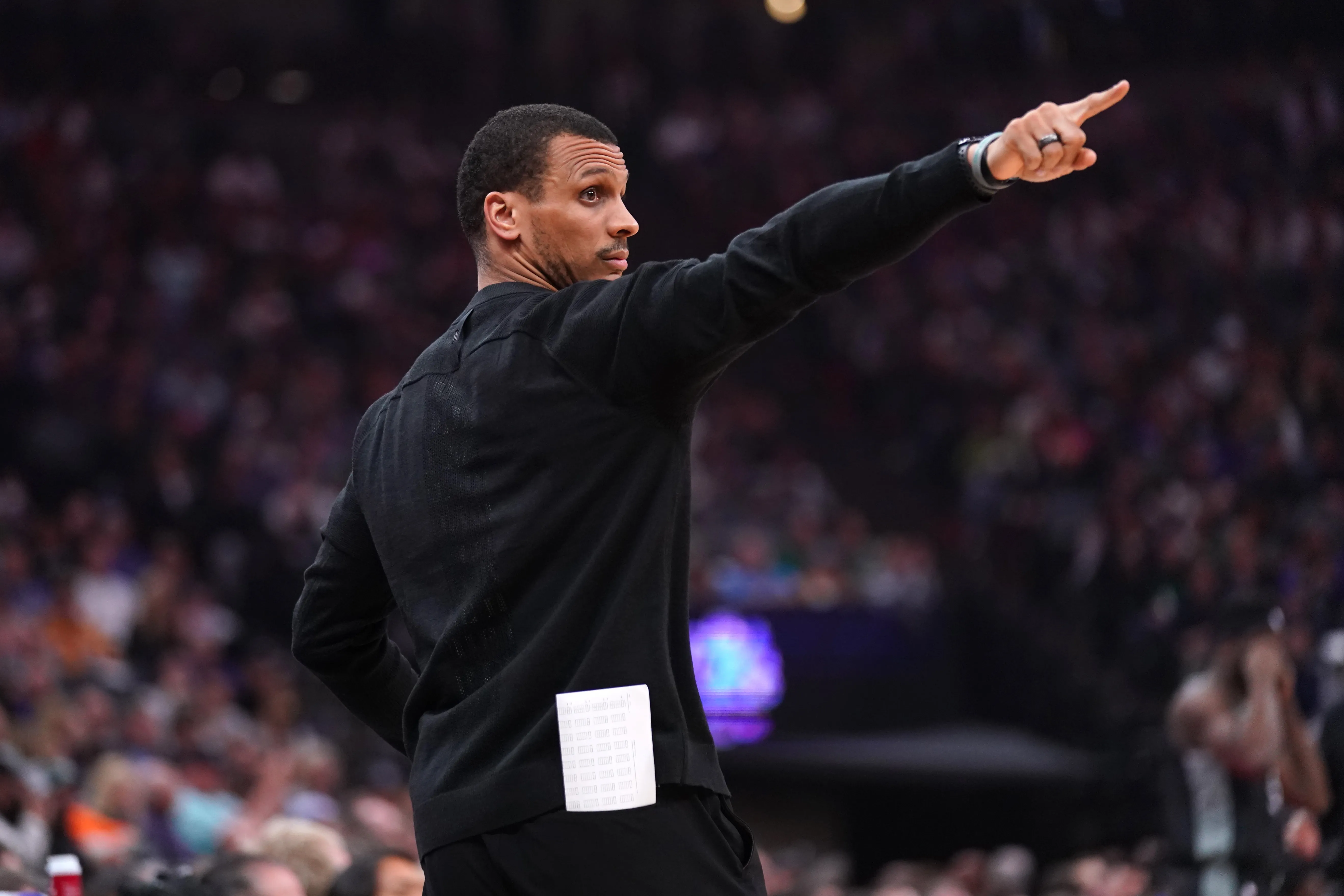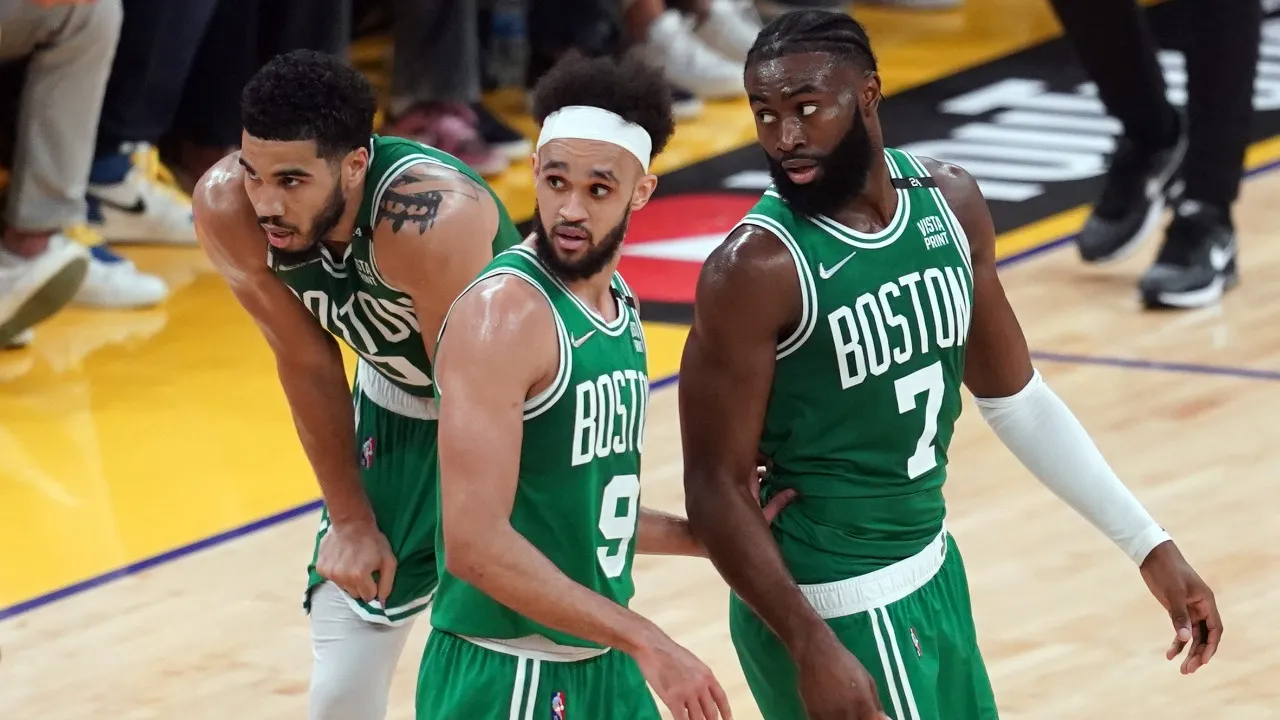HBO's Winning Time series tells the dramatized story of the 1980s "Showtime Lakers." But as demonstrated by Season 2, Episode 3 of the show, that story can't be told without Larry Bird and the Boston Celtics.
Bird was the arch-nemesis of Earvin "Magic" Johnson and the Los Angeles Lakers throughout the '80s. The historic Bird-Magic rivalry began in 1979 when Johnson's Michigan State Spartans beat Bird's Indiana State Sycamores in the 1979 NCAA championship. It went on to become one of the most storied rivalries in sports -- not just basketball -- history.
MORE CELTICS COVERAGE
Stay in the game with the latest updates on your beloved Boston sports teams! Sign up here for our All Access Daily newsletter.
In Sunday's Winning Time episode, the "Hick from French Lick" took center stage. Bird's backstory was the focus, from his collegiate career (Did he really drop 43 points in jeans during an Indiana State scrimmage?) to the tragic story of his father. Although Winning Time is a highly exaggerated take on real events, this episode did a phenomenal job showing who Bird was before he became a Boston legend.
Now, let's separate the fact from the fiction in the episode.
What really happened to Larry Bird's father?
Winning Time is far from a documentary. It's so highly dramatized and over-the-top that sometimes, it's just flat-out silly. That said, Season 2, Episode 3 was an outstanding retelling of Bird's unique and tragic origin story.
Bird's parents, Georgia and Claude Joseph "Joe" Bird, lived in poverty for years in French Lick, Indiana. That inspired Larry Bird to pursue a career in basketball to improve their living situation. Georgia was a waitress who, as Bird has stated, sacrificed to provide for him and his siblings. She has yet to appear in Winning Time, but Joe's story of struggling with alcoholism and depression was a central part of Sunday's episode.
In the show, Larry visits his father in French Lick and informs him that he dropped out of Indiana University. That news doesn't sit well with Joe, who believes Larry is wasting his talent. He also tells Larry that he will be better off without him.
The next time we see Joe in the episode is Feb. 3, 1975, a tragic day for the Bird family. A year after Georgia and Joe's divorce, Joe committed suicide. In Winning Time, Bird is informed that something happened to his father and he returns to Joe's home, where he finds him lying down deceased next to a gun. Joe Bird was 48 when he took his own life.
The show's depiction of Joe Bird's suicide was mostly accurate. It's uncertain whether Joe ever actually told Larry he'd be better without him, but he did call Georgia threatening suicide. It's also unclear how Bird really learned the news of his father's death.
Bird hasn't often publicly discussed his father's suicide. He did, however, open up about it in a 2015 interview with Indianapolis Monthly.
“I sort of always felt my dad gave up on not only himself but us kids,” Bird said. “I still had two younger brothers at home and a mom. That’s the way I looked at it then and the way I look at it now. I handled it pretty good, I think.”
Why did Larry Bird drop out of Indiana?
Bird's time with the Bob Knight-led Indiana Hoosiers lasted only a month. In 1974, Bird decided to drop out -- despite a full scholarship -- and return to his hometown of French Lick, where he briefly joined Northwood Institute.
In Winning Time, Bird explains that he dropped out because he missed home and didn't fit in with the city folk in Indianapolis. This is an accurate portrayal of Bird's real-life experience.
Fortunately for Bird and Celtics fans, he resurrected his basketball career in 1976.
Did Larry Bird really school his Indiana State teammates while wearing jeans?
Bird later joined Indiana State, where he quickly made a name for himself with a legendary scrimmage against his teammates while wearing jeans. Yes, that actually happened.
Then-Indiana State assistant coach Bill Hodges recruited Bird to play for the Sycamores. He eventually convinced Bird to scrimmage against the team. That's when they learned exactly who "Larry Legend" was.
Hodges offered Bird a pair of shorts, but Bird declined and stated he plays better in denim. He proved it by dropping 40 points on his soon-to-be teammates.
You can watch the Winning Time clip here.
How did Larry Bird land in Boston?
In the episode, Celtics head coach and executive Red Auerbach visits Bird in an effort to convince him to come to Boston. Bird is hesitant, stating that the big city isn't for him.
"Boston is working-class people. People who do hard work with pride," Auerbach tells Bird in the show. "If that ain't you, just say so. I'll head back to civilization and stop wasting both of our precious time. But if it is, if you're the kind of guy with the fire in your belly, who don't love winning so much as you hate to lose, then you're a Celtic."
This is where the dramatization comes in. As great as the show's dialogue is, it likely never took place.
Auerbach did, however, select Bird with the sixth overall pick in the 1978 draft. Bird played out the 1979 NCAA season instead of signing with the Celtics, but Boston managed to ink Bird to a five-year, $3.25 million deal just before its draft rights expired.
Auerbach took advantage of a flaw in the NBA's drafting system to select Bird. At the time, a player's draft eligibility was based on being four years after high school graduation. Bird was older than his fellow students at Indiana State because he had dropped out of Indiana. Auerbach used that loophole to land Bird, and the rest is history.



